AI voice assistants
AI voice assistants provide 24/7 support, streamline management, and enhance customer experiences. Integrate the right voice assistant with your CX tools today.
Candace Marshall
Vice President, Product Marketing, AI and Automation
Laatst gewijzigd September 21, 2025
A guide to the 15 best AI voice assistants of 2025
For those who grew up on a steady diet of science fiction, the concept of a helpful, talking computer has been a long-held dream.
Technology has finally caught up with these imaginative ideas, bringing powerful AI voice assistants out of the screen and into our daily lives. They are no longer just for setting timers or playing music. Now, AI voice assistants are sophisticated generative AI tools, ready to handle complex tasks with ease, making everything from scheduling a reminder to summarizing a document simple and hands-free.
While the functions of these tools might seem similar to other digital helpers, AI chatbots operate primarily through text-based conversations, and voice assistants are designed to interpret and respond to spoken commands. This conversational, auditory interaction offers a new level of convenience and efficiency, enhancing the customer experience without compromising the quality of service.
We'll take a closer look at AI voice assistants, exploring their functionality, the benefits they bring to business, and what to look for when choosing the right one for your organization.
More in this guide:
- What is an AI voice assistant?
- How do AI voice assistants work?
- AI voice assistants comparison chart
- The 15 best AI voice assistants
- What can AI voice assistants do?
- Benefits of an AI voice assistant
- How to choose the right AI voice assistant
- AI voice assistants trends and advancements
- Frequently asked questions
- Integrate an AI-powered voice assistant with a leading CX solution
What is an AI voice assistant?An AI voice assistant is a virtual software program that uses artificial intelligence (AI), natural language processing (NLP), and voice recognition to perform tasks and respond to voice commands. |
How do AI voice assistants work?
AI-powered voice assistants move through a series of sophisticated steps to transform a simple spoken request into an actionable task. It all happens in seconds, powered by speech recognition, natural language processing, and conversational intelligence software. Here’s how they do it:
- Start listening for the caller: The assistant begins processing the conversation as soon as the customer starts speaking, detecting intent to respond appropriately or route the call.
- Convert speech to text: The assistant’s voice recognition software captures and translates your speech into digital text, even accounting for tone and inflection.
- Understand your intent: Using NLP, the AI analyzes your request to understand the meaning and context—whether you’re asking for a report or adjusting a smart device.
- Retrieve or execute: The assistant searches an AI knowledge base, executes the task, or interacts with connected systems to deliver a result.
- Respond naturally: Finally, it delivers an answer using text-to-speech, creating a fluid, conversational interaction.
Now that we know how these assistants operate, let's explore the powerful capabilities they bring to the table.
AI voice assistants comparison chart
Our chart can help you quickly compare starting price, free trial options, and best use case for each software.
|
Software |
Best for |
Starting price |
Free trial |
|
Zendesk |
Advanced voice AI in a unified omnichannel CX platform |
14 days | |
|
PolyAI |
Voice-first service |
Contact PolyAI |
Unavailable |
|
Siri |
Privacy and security |
Free |
Not applicable |
|
Alexa |
Accessibility |
Free with Amazon Prime, $19.99/month without |
Not applicable |
|
Google Assistant |
Call assistance |
Free |
Not applicable |
|
Gemini |
Natural, conversational interactions |
$19.99/month (Pro) |
30 days |
|
Bixby |
Device control |
Free |
Not applicable |
|
Meeting notes, summaries, and transcriptions |
$8.33/user/month (billed annually) |
7 days (business trial) | |
|
ChatGPT with Voice |
General conversations |
$20/month (Pro) |
Not applicable |
|
Perplexity |
In-depth, cited research |
$20/month (Pro) |
Unavailable |
|
Microsoft Copilot Voice |
Hands-free productivity |
$20/user/month (Pro) |
Unavailable |
|
Meta AI |
Personalized social connections |
Free |
Not applicable |
|
Jasper AI |
Marketing and content creation |
$59/seat/month |
7 days |
|
Spitch |
Omnichannel assistance |
Contact Spitch |
Unavailable |
|
VOCALLS |
Automation |
Contact VOCALLS |
Unavailable |
The 15 best AI voice assistants
We've compiled a list of the top 15 AI voice assistants on the market that offer a range of features, from task management to conversational capabilities. Check out our list below.
- Zendesk: Best for enhancing customer and employee service
- PolyAI: Best for voice-first service
- Siri: Best for privacy and security
- Alexa: Best for accessibility
- Google Assistant: Best for call assistance
- Gemini: Best for natural, conversational interactions
- Bixby: Best for device control
- Otter.ai: Best for meeting notes, summaries, and transcriptions
- ChatGPT with Voice: Best for general conversations
- Perplexity: Best for in-depth, cited research
- Microsoft Copilot: Best for hands-free productivity
- Meta AI: Best for personalized social connections
- Jasper AI: Best for marketing and content creation
- Spitch: Best for omnichannel assistance
- VOCALLS: Best for automation
1. Zendesk voice AI agents
Best for enhancing customer and employee service
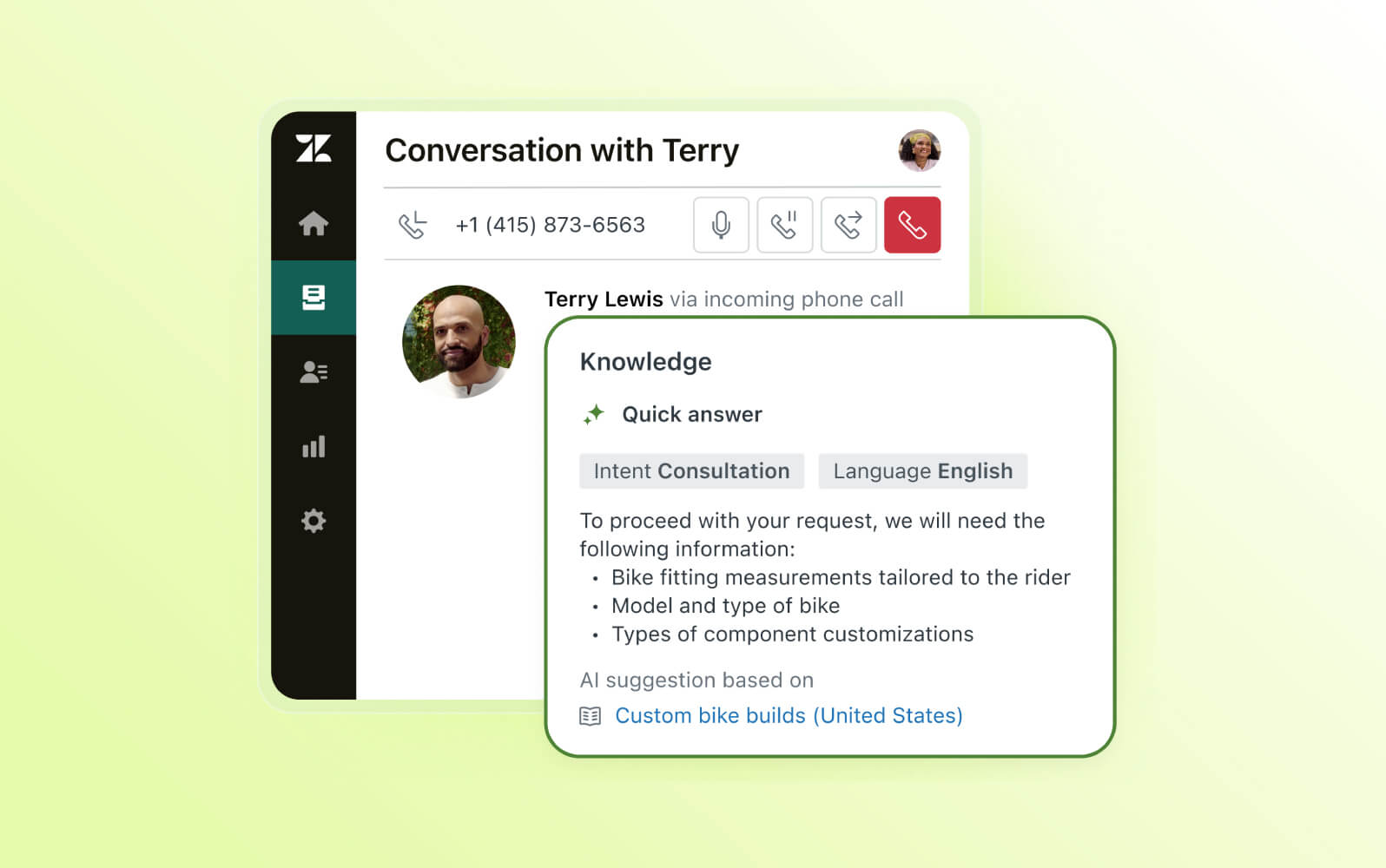
|
Starting price |
Free trial |
Key features |
|
Contact Zendesk Explore more Zendesk pricing plans. |
14 days |
|
Zendesk voice AI agents bring the power of automation to the phone channel, delivering real-time, end-to-end call resolutions. Unlike consumer assistants like Siri or Alexa, these AI-powered voice agents are built for customer conversations. They hold natural, human-like interactions and seamlessly hand off complex cases to a live agent when needed.
Because they are natively integrated into Zendesk, voice AI agents work across channels with shared context. They interpret customer intent and sentiment, then tailor responses so every interaction feels personal and relevant. They also operate alongside the Zendesk AI help desk so teams can manage customer conversations in one place.
Every interaction is captured through comprehensive transcripts and real time monitoring. Supervisors gain full visibility into performance and can rely on built-in quality assurance tools to ensure resolutions meet company standards. With customizable workflows and clear insights, businesses can automate more confidently, lower costs, and free up human agents to focus on complex issues where expertise adds the most value.
|
Pros |
Cons |
|
|
What people are saying:
- “Zendesk is an awesome tool, but is also an awesome partner.” - Michael Jerone F.
- “Zendesk's omnichannel capabilities are genuinely impressive—being able to handle emails, chats, calls, and social messages all from one unified agent workspace reduces clutter and boosts response time. The automation features, like triggers and macros, save tons of manual effort. Integration with third-party tools (like Jira, Slack, and Shopify) is seamless, and the reporting dashboard gives real-time insights that help us make data-driven decisions.” - Sachin K.
2. PolyAI
Best for voice-first service
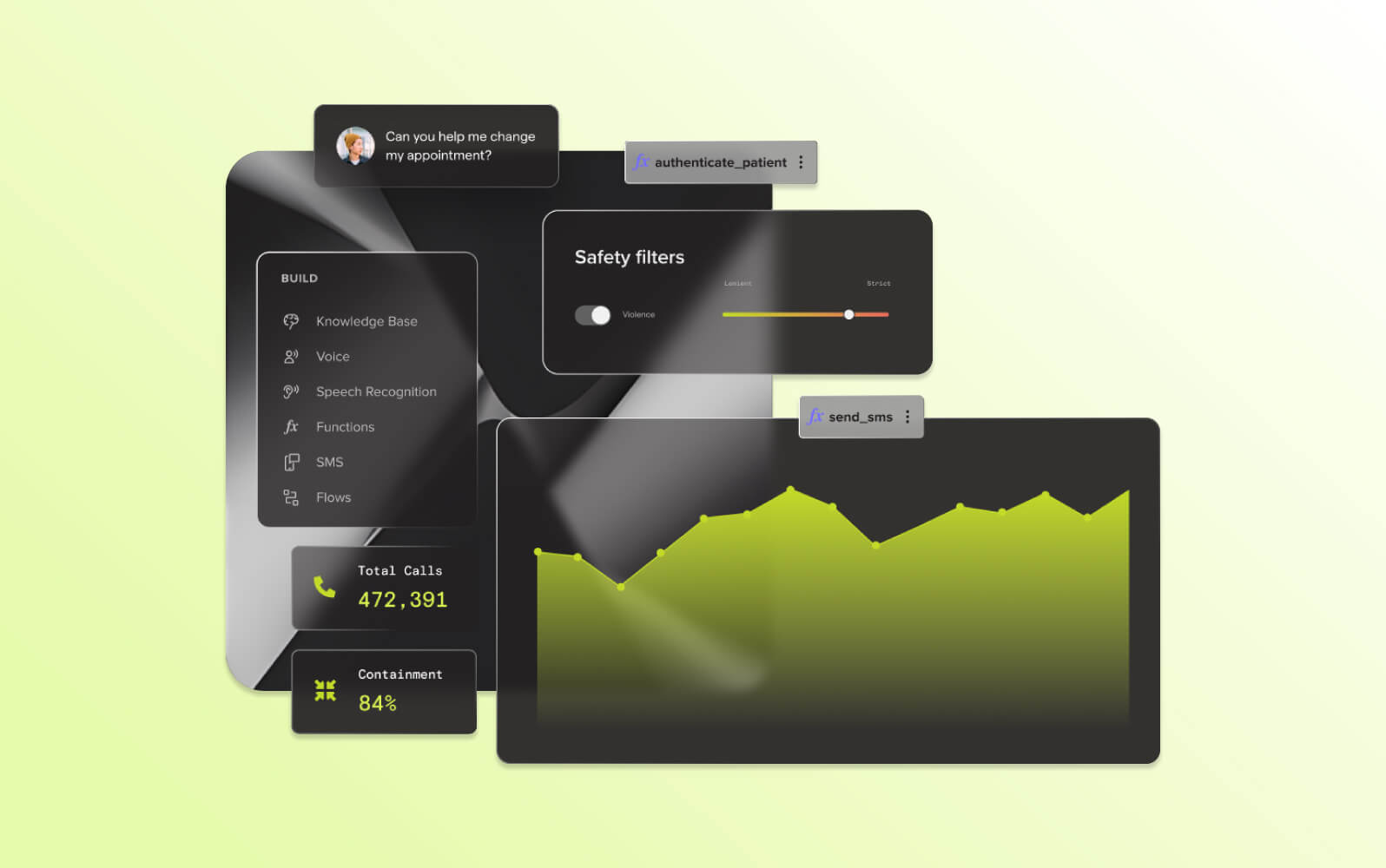
|
Starting price |
Free trial |
Key features |
|
Contact PolyAI |
Unavailable |
|
PolyAI develops AI voice assistants designed to handle high call volumes with natural, human-like conversations. Its technology powers voice-first customer service for industries like banking, healthcare, and hospitality, providing support in 45 languages.
Built on a combination of dialogue management, natural language understanding (NLU), and spoken language understanding (SLU), PolyAI assistants can interpret customer intent and adapt to real-time speech patterns. They integrate into existing tech stacks, deploy across channels, and can resolve common requests like authentication, billing, or order management around the clock.
|
Pros |
Cons |
|
|
What people are saying:
- “Very useful voice assistant tool.” - Buket K.
- “Sometimes the app is working slow and it will take time to initiate any command.” - Sagar R.
- “[PolyAI is] perfect for creating a customer-led seamless conversational AI bot.” - Prajwala K.
Learn more: Discover how PolyAI integrates with Zendesk.
3. Siri
Best for privacy and security
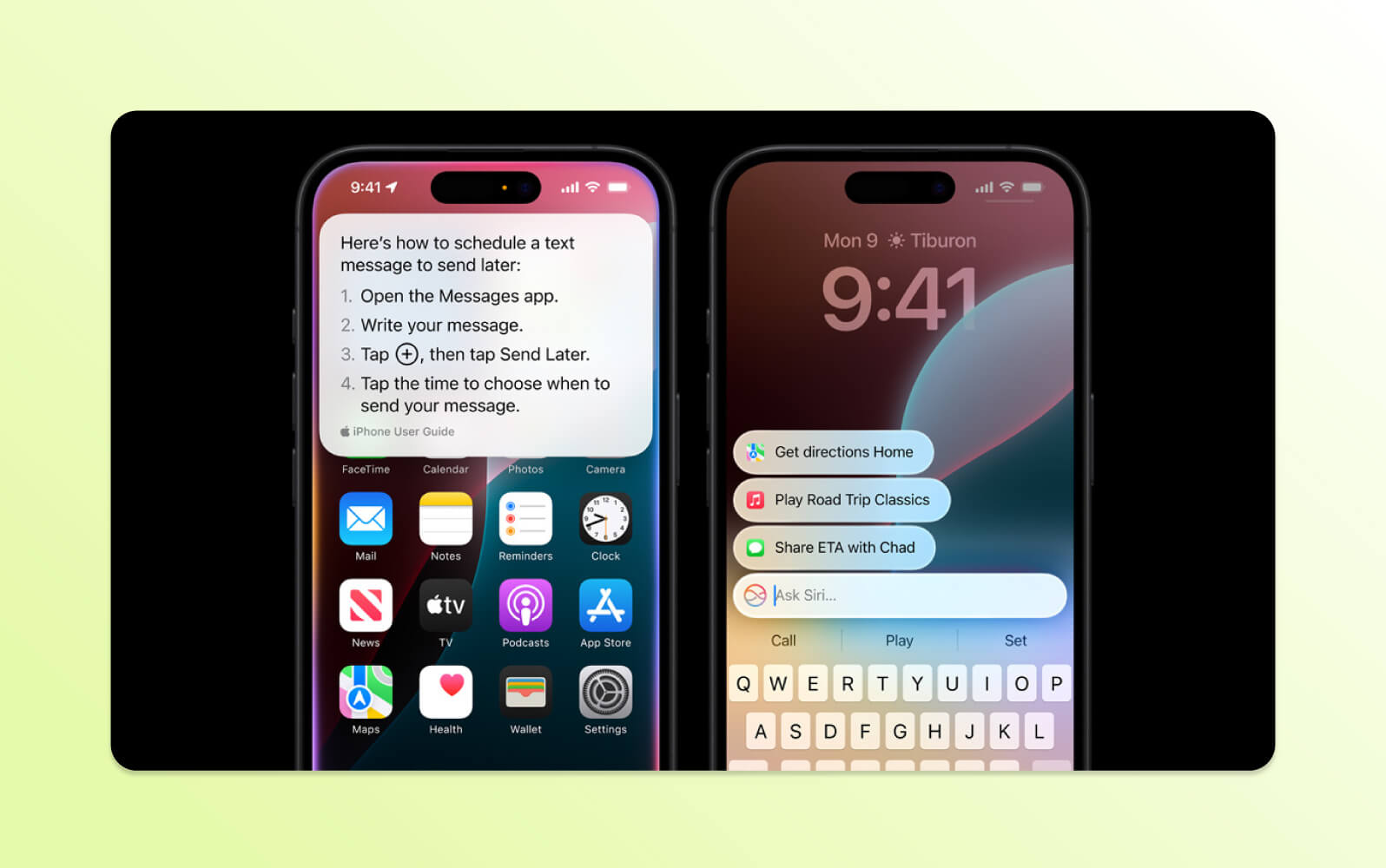
|
Starting price |
Free trial |
Key features |
|
Free |
Not applicable |
|
Siri is Apple’s long-standing AI-powered voice assistant, available on iPhones, iPads, Macs, Apple Watch, and Apple Vision Pro. Originally launched in 2011, Siri focuses on providing hands-free help for everyday tasks, from sending messages to managing reminders, navigating with CarPlay, and controlling smart home devices.
Built on the Apple Neural Engine, Siri leverages on-device intelligence to personalize assistance while prioritizing user privacy. Most requests are processed locally, and Apple ensures interactions are not tied to personal accounts or shared with advertisers. Siri also supports back-to-back requests, so users can issue follow-up commands without repeating the wake phrase.
|
Pros |
Cons |
|
|
What people are saying:
- “A few years ago, Siri was great for asking random questions and simple tasks [like] setting alarms and reminders. Mine does absolutely nothing now. ” - Reddit
- “Simple questions are directed to websites with nothing related to the question.” - Anonymous (Verified)
4. Alexa
Best for accessibility

|
Starting price |
Free trial |
Key features |
|
Free for Amazon Prime members; $19.99/month for non-members |
Not applicable |
|
Amazon’s Alexa, introduced in 2014, is a cloud-based AI voice assistant designed to simplify daily routines and enhance accessibility. In addition to basic commands like setting alarms or reminders, Alexa supports features such as real-time call captioning and personalized customer profiles.
Alexa's functionality can be expanded with "Skills," which are like apps that add new capabilities, ranging from playing games to controlling smart home devices and ordering food. It can recognize users through voice IDs to improve security and tailor responses, making it a helpful assistant for diverse users, including those with accessibility needs.
Alexa integrates with contact centers to answer common questions, make outbound calls, and handle tasks like managing calendars, setting timers, or controlling smart home devices. Its ability to maintain conversational flow and adapt when interrupted offers a natural user experience. Alexa also connects across multiple devices, enabling users to start a conversation on one device and pick it up on another, keeping interactions seamless throughout the day.
|
Pros |
Cons |
|
|
What people are saying:
- “Alexa for Business helps employees save time and focus on more important work.” - Tierra S.
- “What I dislike about Alexa for Business is the limited customization for enterprise-specific needs and occasional concerns around privacy and data security in corporate environments." - Rahul C.
- "Prices are quite high in comparison with other applications." - Patricia E.
5. Google Assistant
Best for call assistance
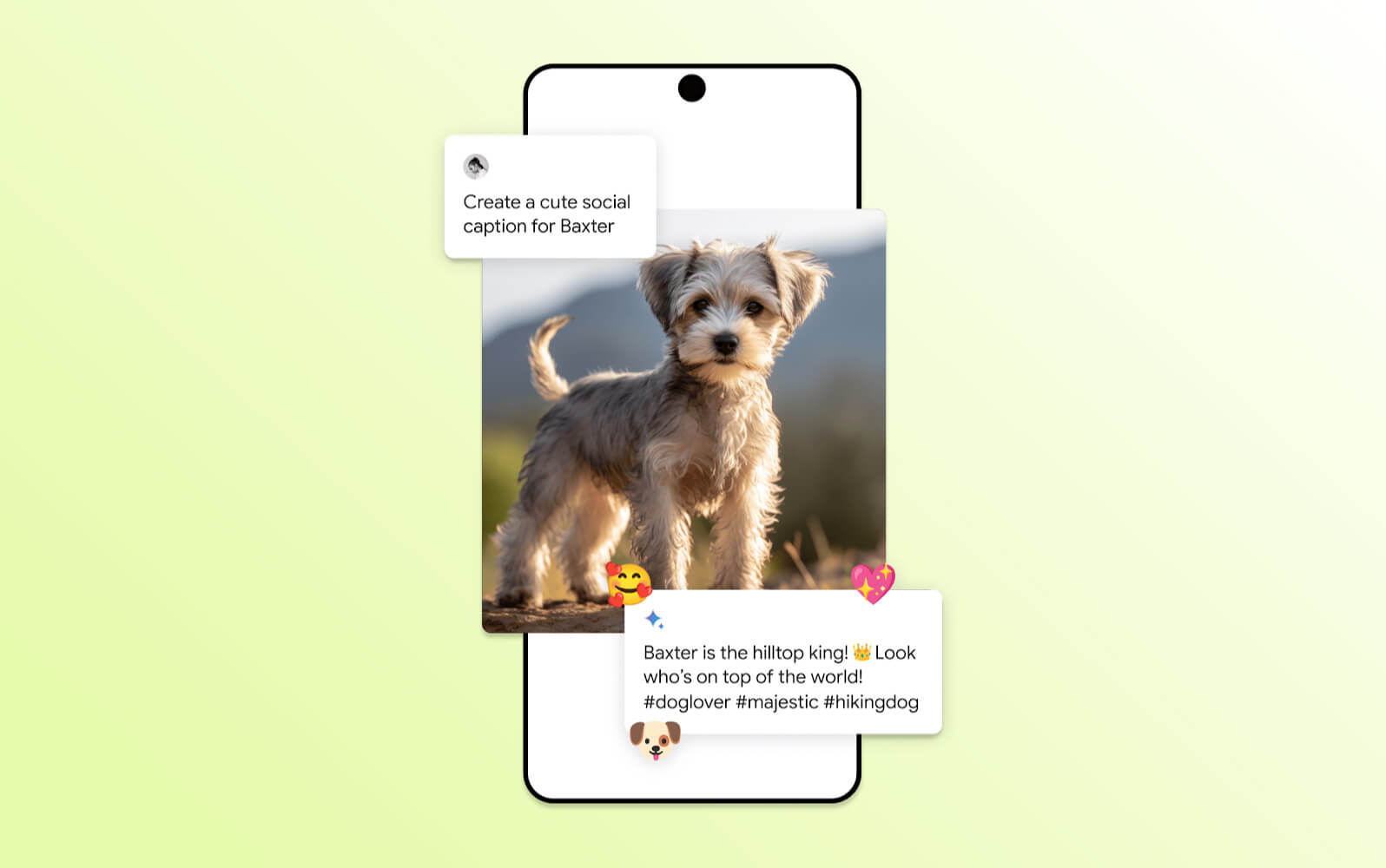
|
Starting price |
Free trial |
Key features |
|
Free |
Not applicable |
|
Google Assistant, launched in 2016, is an AI voice assistant available across a wide range of devices including phones, tablets, smart displays, and cars. It allows users to manage tasks, communicate hands-free, and access local information quickly. Built-in privacy controls such as standby mode help users manage data sharing according to their preferences.
The assistant supports over 30 languages, and businesses can customize it to reflect their brand voice. Features like call screening and conversation predictions help you manage incoming calls more effectively. Users also benefit from shortcuts that streamline accessing apps and information, as well as tools like Family Link for managing device usage and content for family members.
|
Pros |
Cons |
|
|
What people are saying:
- “Unable to recognize voice and perform messaging functions that Cortana was able to perform over 10 years ago on a much older phone. Have to say ‘Hey Google’ multiple times to even get a response." - David P.
- “Great." - Thiru M.
- “[Google Assistant] generally gave solid, fast answers with context, though Google's AI failed to understand my question about why the sky was blue.” - Kate K.
6. Gemini
Best for natural, conversational interactions
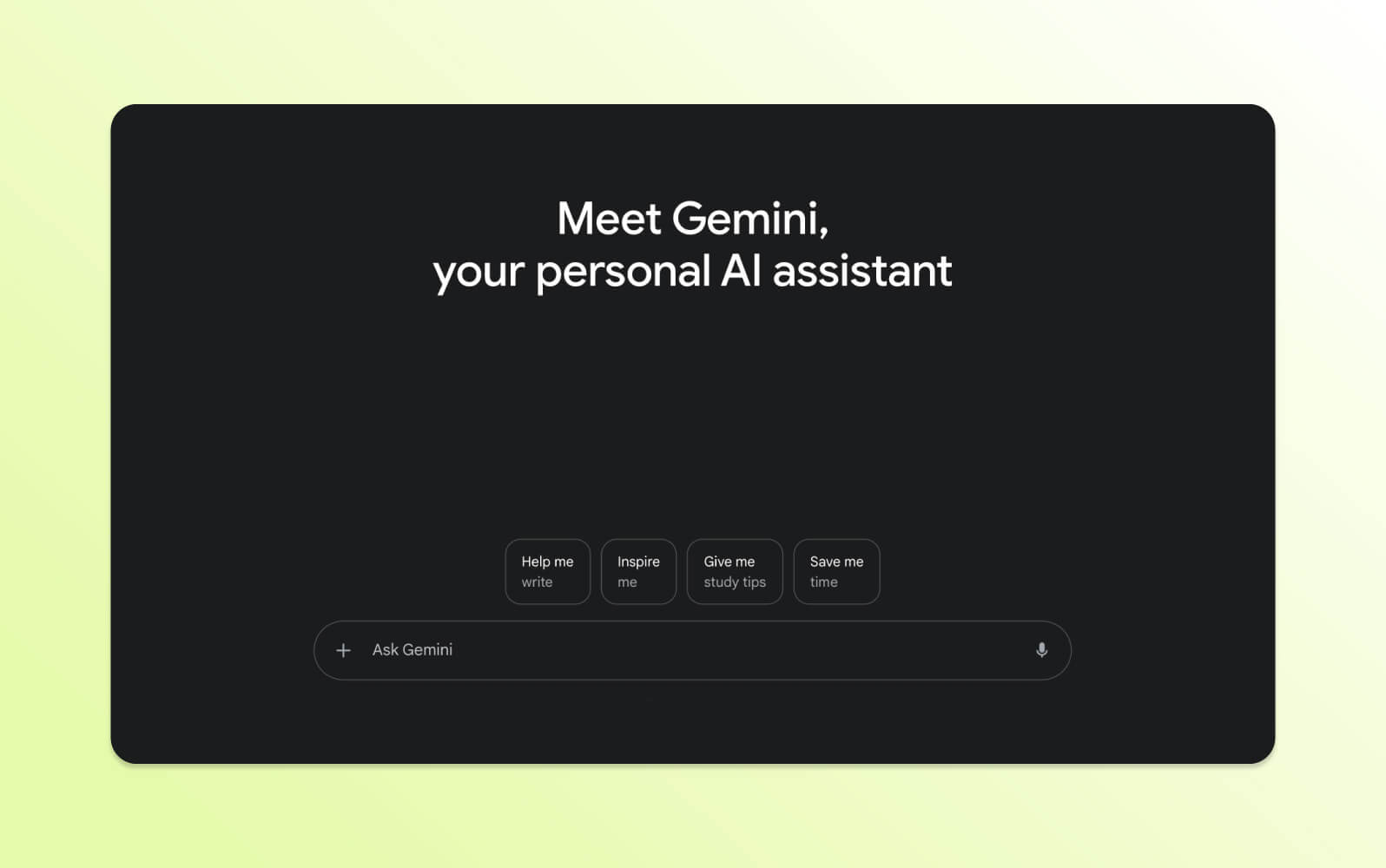
|
Starting price |
Free trial |
Key features |
|
$19.99/month (Pro) |
30 days |
|
Gemini is Google’s next-generation AI assistant, designed to build on and extend the capabilities of Google Assistant. Built on cutting-edge large language models (LLMs), Gemini offers deeper conversational understanding and reasoning, allowing users to interact naturally through voice or text. It supports multimodal inputs, including text, audio, and images, aiming to be a more helpful and personal assistant for a range of tasks.
Unlike earlier assistants, Gemini can handle complex requests such as summarizing lengthy documents, assisting with coding problems, or generating creative content. It also supports advanced features like uploading files for analysis and providing context-rich responses. Gemini is continuously evolving with new capabilities and safety measures, including tools to verify response accuracy and minimize bias, making it a solid assistant for productivity, creativity, and learning.
|
Pros |
Cons |
|
|
What people are saying:
- “Customer support is great, with video tutorials on what to expect.” - Tammy O.
- “I like the fact that there are several free models that actually works better than competitor paid models.” - George A.
- “Does not seem to understand what you're asking, especially if you want to enhance photos.” - Verified User
7. Bixby
Best for device control
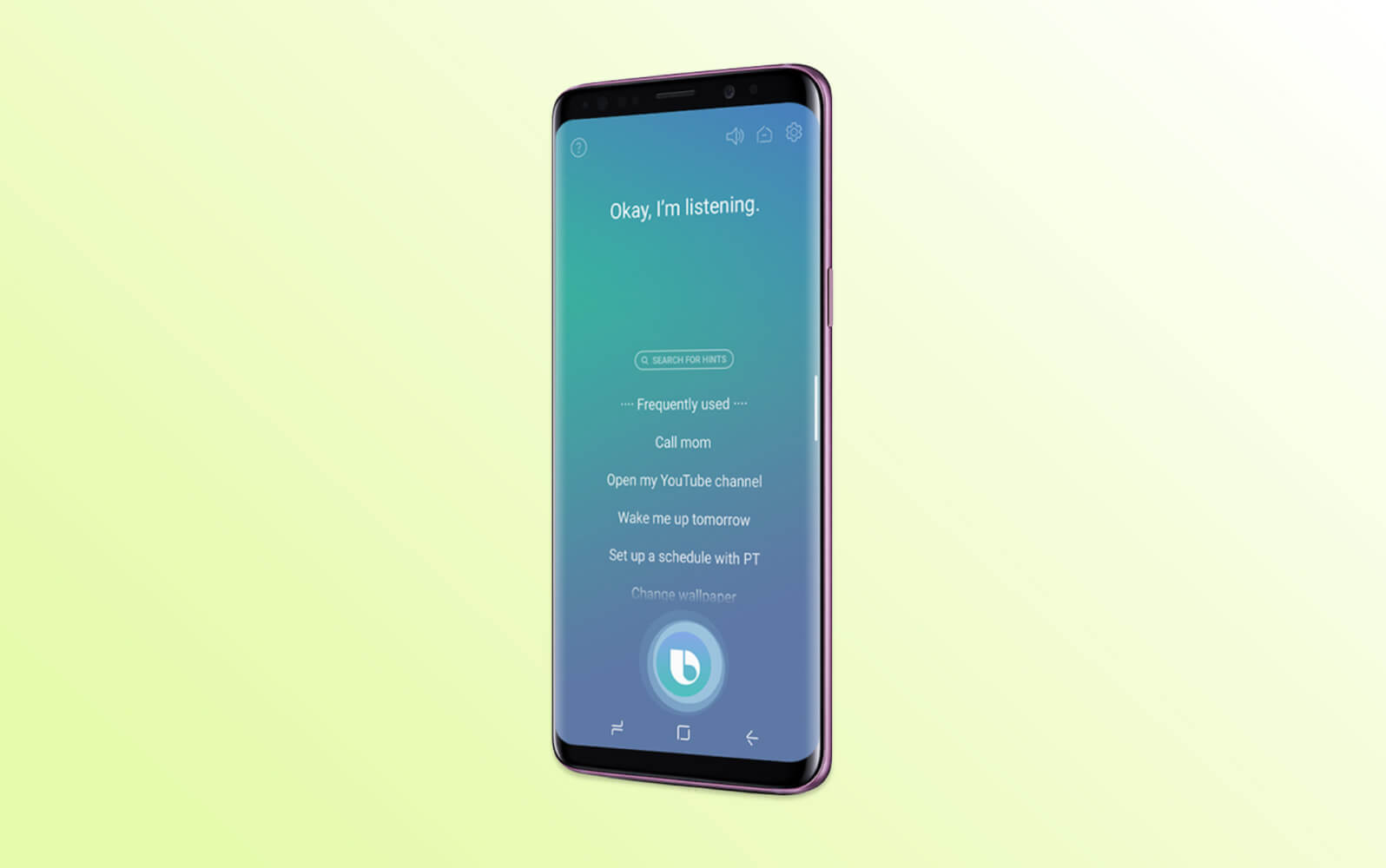
|
Starting price |
Free trial |
Key features |
|
Free |
Not applicable |
|
Bixby is Samsung’s AI-powered voice assistant, embedded across Galaxy smartphones, tablets, wearables, smart TVs, and appliances. It supports voice, text, and touch interactions, enabling users to control device settings, manage smart home devices, and complete everyday tasks hands-free. Samsung is actively integrating generative AI and LLMs into Bixby to boost its conversational capabilities and overall intelligence.
The assistant stands out for its deep integration with Samsung’s SmartThings ecosystem, allowing control of connected home devices. It offers features like quick command automation, language translation, and intelligent assistance with tasks such as browsing, transcription, and summaries. Its broad language support and customization options make it versatile for global users and those who want tailored AI assistance across Samsung products.
|
Pros |
Cons |
|
|
What people are saying:
- “I use her to skip songs when my hands are dirty/occupied.” - Reddit
- “You can create custom commands for Bixby, a shortcut if you will. ” - Reddit
- “It's actually faster to ask Bixby to turn my lights off than to reach over and tap their power buttons by hand!” - Bertel K.
8. Otter.ai
Best for meeting notes, summaries, and transcriptions
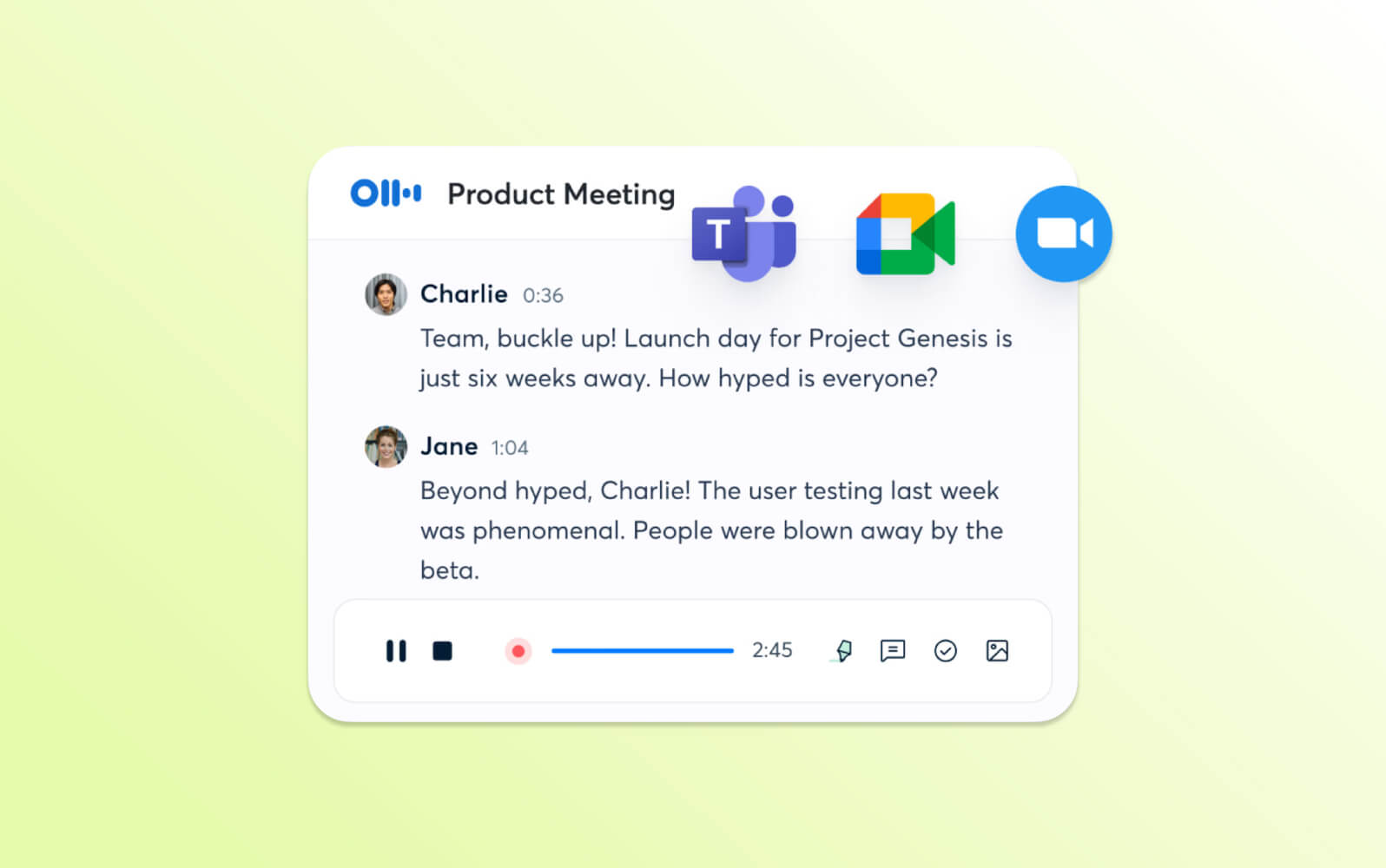
|
Starting price |
Free trial |
Key features |
|
$8.33/user/month (billed annually) |
7 days |
|
Otter.ai is an AI-powered transcription and note-taking tool designed to capture spoken content from meetings, interviews, lectures, and other conversations in real time. It helps users stay engaged by automating note-taking and making audio content searchable and easy to review later.
The AI voice assistant offers speaker identification, keyword highlighting, and integration with popular platforms like Zoom, Google Meet, and Microsoft Teams. Users can organize transcripts, export them in various formats, and access notes on mobile devices. Otter also generates automated summaries and action items to streamline follow-ups. It supports workflows across business, education, media, and sales teams, improving productivity by reducing manual effort.
|
Pros |
Cons |
|
|
What people are saying:
- “Accurate transcription, nice UI, good collaboration." - Mason S.
- “The user experience for my calendar was poor. It would add Otter to everything, even stuff I didn't want to record, and then spam me with emails about recording the meetings I didn't want to record.” - Verified User
9. ChatGPT with Voice
Best for general conversations

|
Starting price |
Free trial |
Key features |
|
$20/month (Pro) |
Not applicable |
|
ChatGPT with Voice allows users to engage in spoken conversations with the AI, enabling hands-free interaction across desktop and mobile platforms. Users can ask questions verbally and receive natural-sounding audio responses, making the experience more accessible and conversational.
The feature supports interruptible, back-and-forth dialogue and offers voice customization with multiple voice options. Powered by advanced text-to-speech and speech recognition models, ChatGPT with Voice integrates image input capabilities, allowing users to discuss images in real time. Available primarily for Plus and Enterprise users, this mode is gradually rolling out across devices.
|
Pros |
Cons |
|
|
What people are saying:
- “The voice chat doesn’t always work properly. That makes it hard to use when I’m driving or have my hands busy. I really wish the voice feature was more reliable for hands-free use.” - Kristina Alex G.
- “What I like best about ChatGPT is how it helps me start my day-to-day writing tasks with ease and clarity.” - Nicole C.
- “ChatGPT does not work with phones having iOS below 17, and the mobile version website does not work well either.” - Namrata A.
Learn more: Discover how ChatGPT integrates with Zendesk.
10. Perplexity
Best for in-depth, cited research
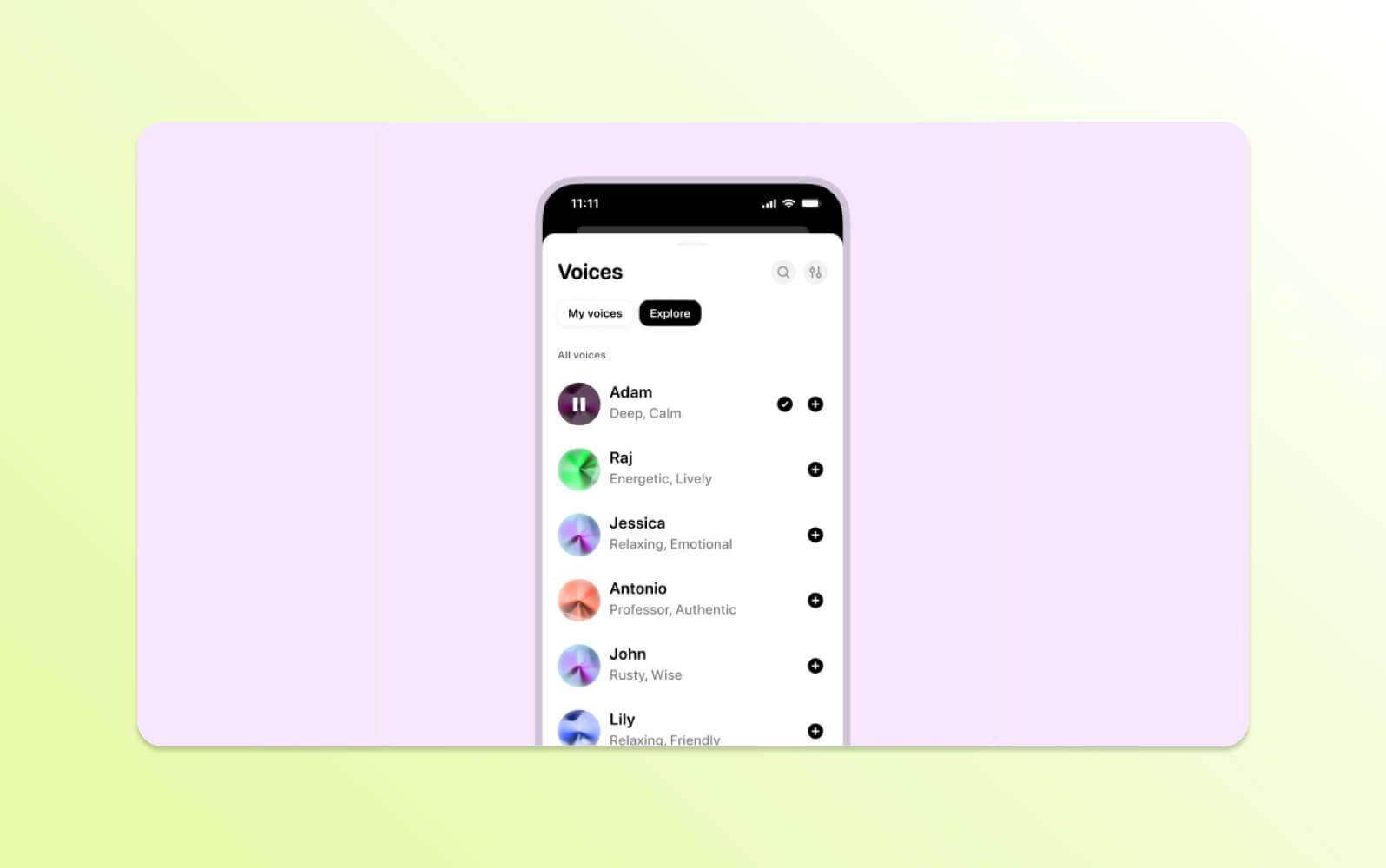
|
Starting price |
Free trial |
Key features |
|
$20/month (Pro) |
Unavailable |
|
Perplexity is an AI platform offering a voice assistant that supports natural language commands for hands-free interaction. Designed for iOS, Android, web, and desktop, Perplexity’s voice assistant understands spoken requests and responds with audio, speeding up information retrieval and task completion.
The assistant integrates deeply with apps on iOS, such as Apple Music, Calendar, and Uber, allowing users to play music, schedule events, and book rides through voice commands. It supports conversational AI for a fluid, human-like interaction and is accessible via multiple activation methods on Android devices, making it a versatile companion for everyday tasks.
|
Pros |
Cons |
|
|
What people are saying:
- “Perplexity is second to none when it comes to deep and complex research and complex multistep tasks.” - Antoine J.
- “The follow-up questions to your questions are absolute gold to keep brainstorming and going deep with the topic you are researching.” - Victoria F.
- “The main downside I encountered was the occasional inaccuracy with highly specialized queries. While the tool performs well for general information, it sometimes struggles with niche topics that require detailed insights.” - Luca P.
11. Microsoft Copilot Voice
Best for hands-free productivity
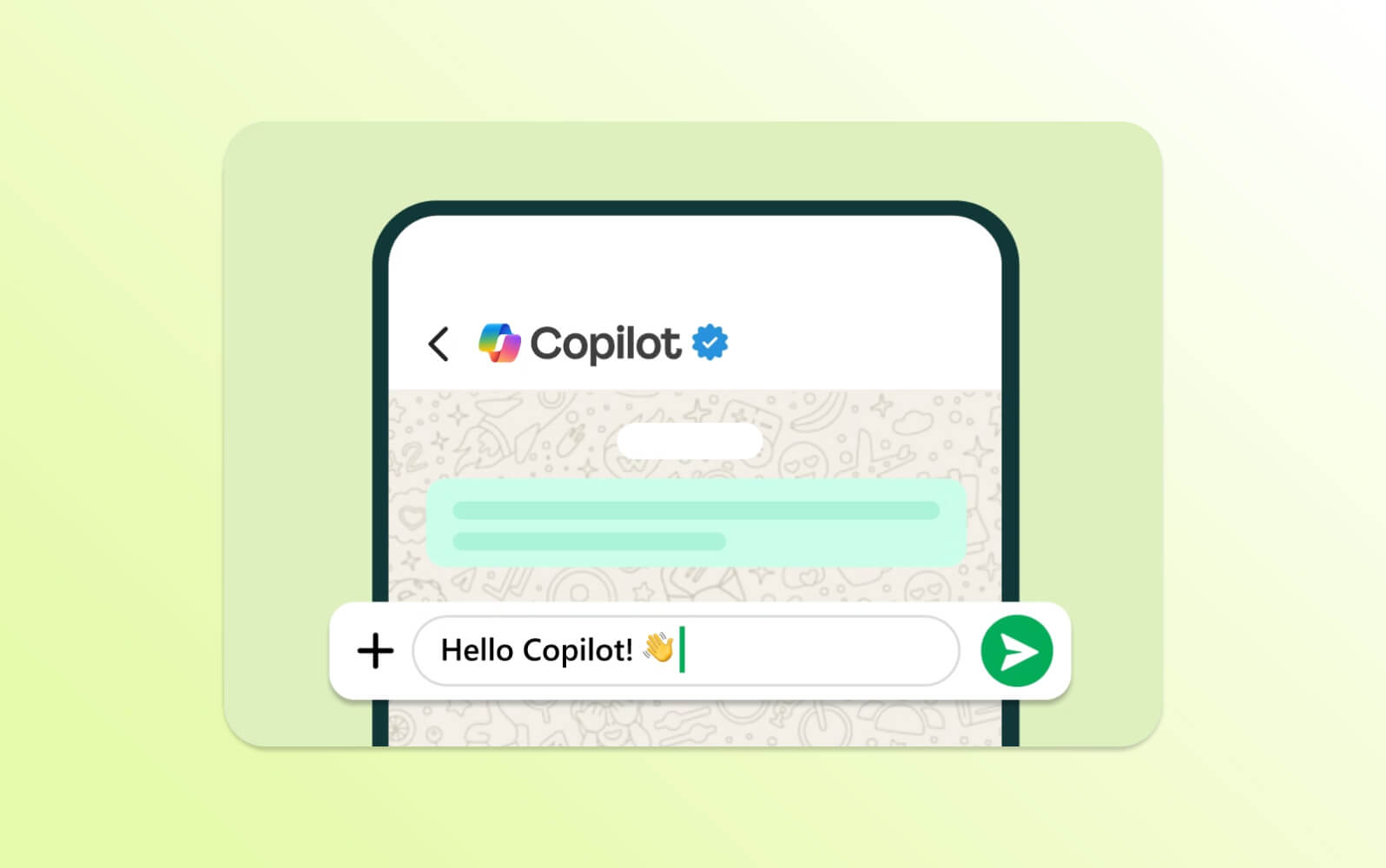
|
Starting price |
Free trial |
Key features |
|
$20/user/month (billed annually) |
Unavailable |
|
Microsoft Copilot Voice is a voice-enabled feature of the Microsoft Copilot AI assistant that allows users to interact using natural spoken language instead of typing. This hands-free tool is designed to boost productivity by enabling users to manage tasks, ask questions, and generate content simply by speaking.
Copilot Voice supports more than 40 languages and understands conversational commands. Access is unlimited across platforms, including Windows, macOS, Android, iOS, and through the Edge browser, whether on the free or Copilot Pro subscription. Users activate it by selecting the microphone icon in the Copilot interface.
|
Pros |
Cons |
|
|
What people are saying:
- “The best thing about Copilot is that it gives you results well researched with references and very detailed.” - Abhishek A.
- “Copliot was so easy to add to my setup and I now use it every day, multiple times a day in my work.” - Laura M.
- “It requires a great deal of input to refine or redirect results received." - Nicholas R.
12. Meta AI
Best for personalized social connections
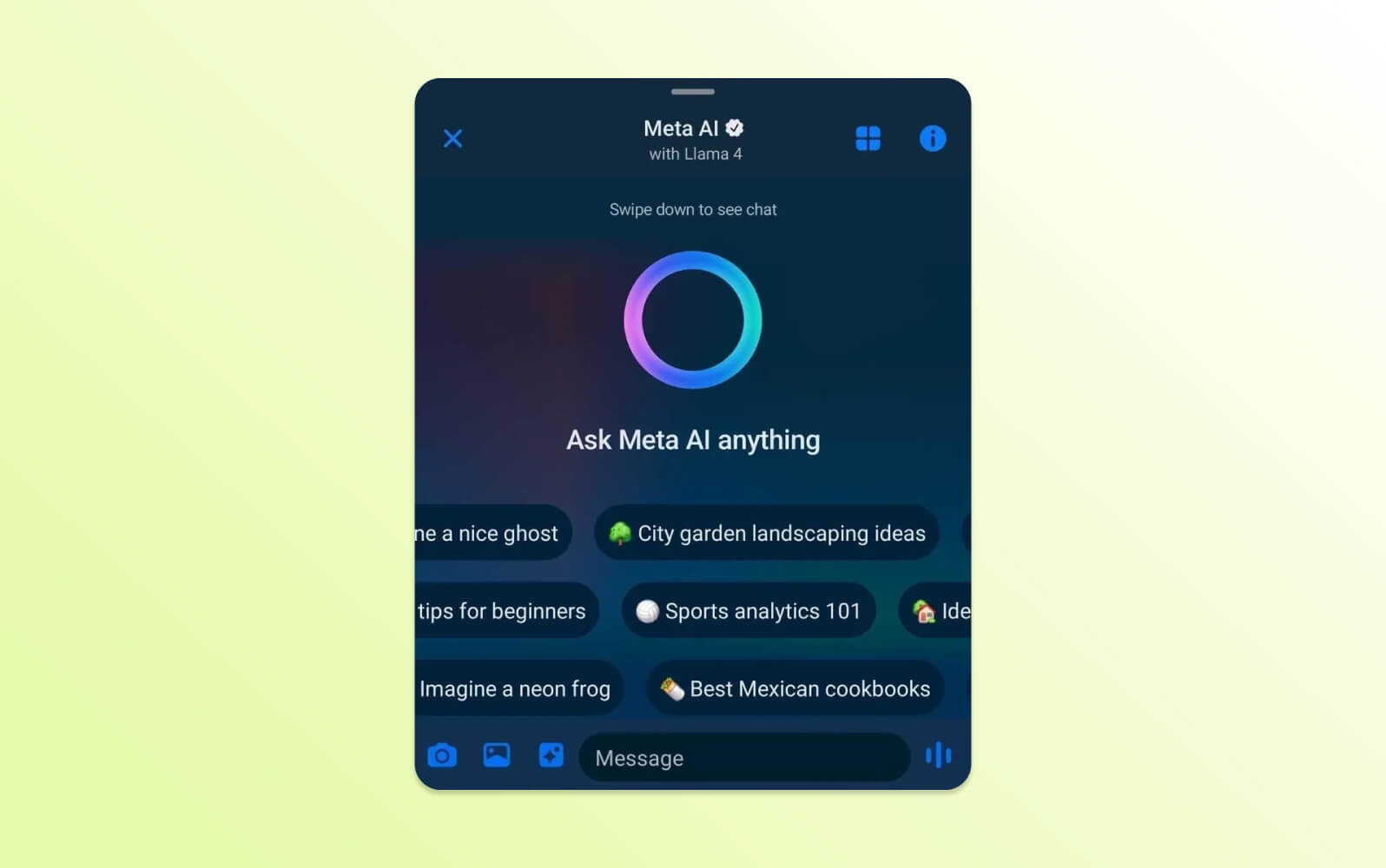
|
Starting price |
Free trial |
Key features |
|
Free |
Not applicable |
|
Meta AI is an AI assistant built on the Llama 4 model and designed to offer personalized help across Meta’s platforms, including Facebook, Instagram, WhatsApp, and Messenger. It provides voice-enabled conversations and integrates social context to deliver relevant, personalized responses.
The Meta AI app features a Discover feed to explore AI uses, supports voice conversations with full-duplex speech technology for natural back-and-forth dialogue, and connects with Meta devices such as Ray-Ban Meta glasses. Users can manage conversations across devices and benefit from AI-powered image generation and editing. Privacy controls ensure users manage what is shared, while AI continuously learns from user preferences and context for more tailored assistance.
|
Pros |
Cons |
|
|
What people are saying:
- “The conversational format makes it easy to ask questions, share thoughts, and explore topics.” - Kassie H.
- “There are better AI companions out there that treat users like full human beings. Meta’s just not there yet.” - Peggy H.
- "I think I should be able to talk to Meta AI in my language but it sends a message in Norwegian then changes it to English saying that it doesn't understand Norwegian. I have screenshots.” - Amelia
13. Jasper AI
Best for marketing and content creation
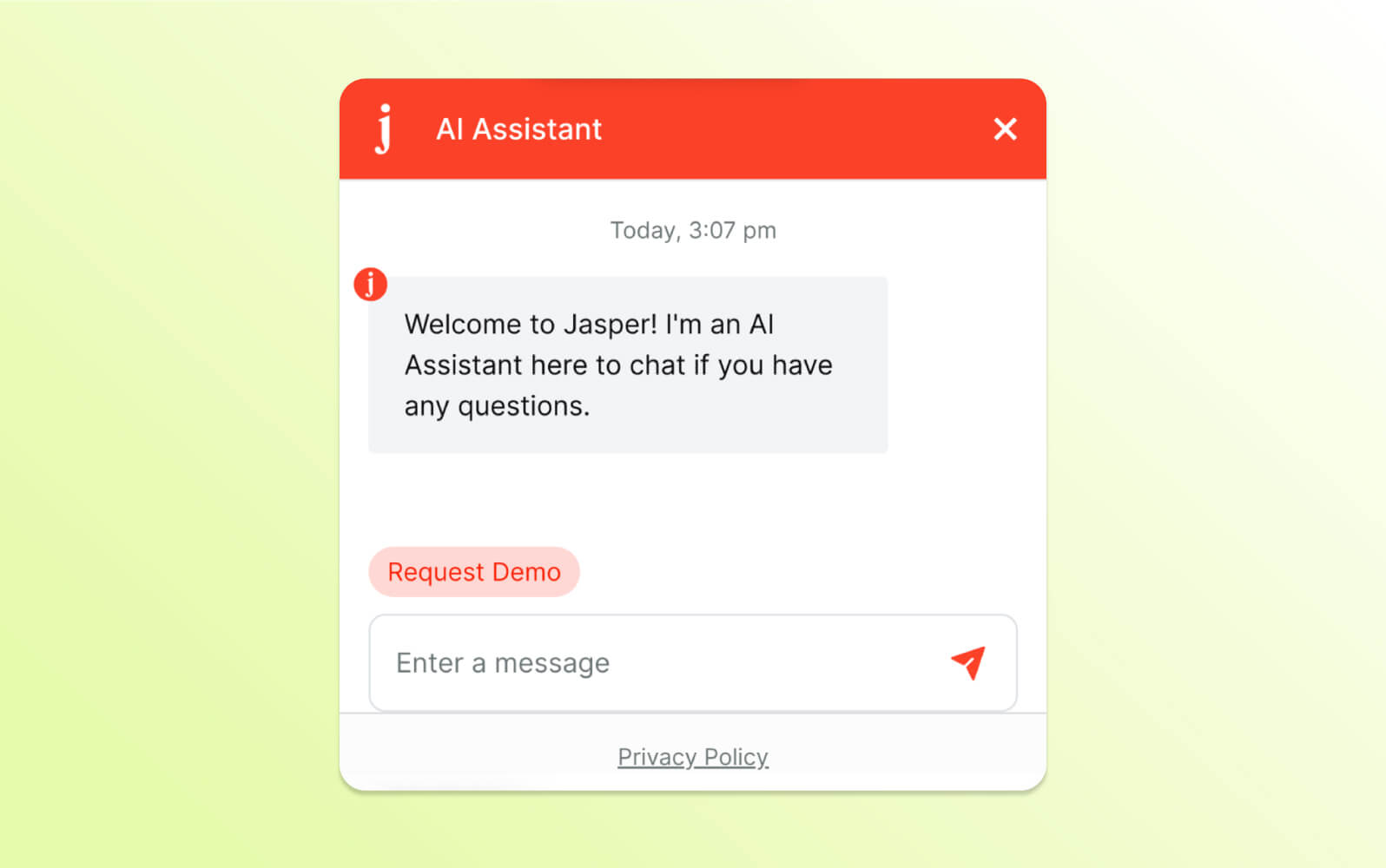
|
Starting price |
Free trial |
Key features |
|
$59/seat/month |
7 days |
|
Jasper AI is an AI-powered platform designed to support marketing and content creation teams by generating high-quality written content. It uses advanced NLP and machine learning to create blog posts, social media updates, product descriptions, marketing copy, and more.
The platform also includes a voice assistant feature that converts spoken words into text, available both on desktop and via a browser extension. This voice dictation functionality helps users speed up writing, overcome writer’s block, and improve workflow efficiency. Additional features include AI art generation, brand voice management, team collaboration tools, and content optimization capabilities.
|
Pros |
Cons |
|
|
What people are saying:
- “It’s kind of a friendly voice that you can kick around ideas with when you need some brainstorming advice.” - Munoz C.
- “I recently reached out to the customer support team to ask them for help transferring my colleague's account to my name and they were very helpful.” - Ana C.
- “The output quality was very very bad.” - Verified User
14. Spitch
Best for omnichannel assistance
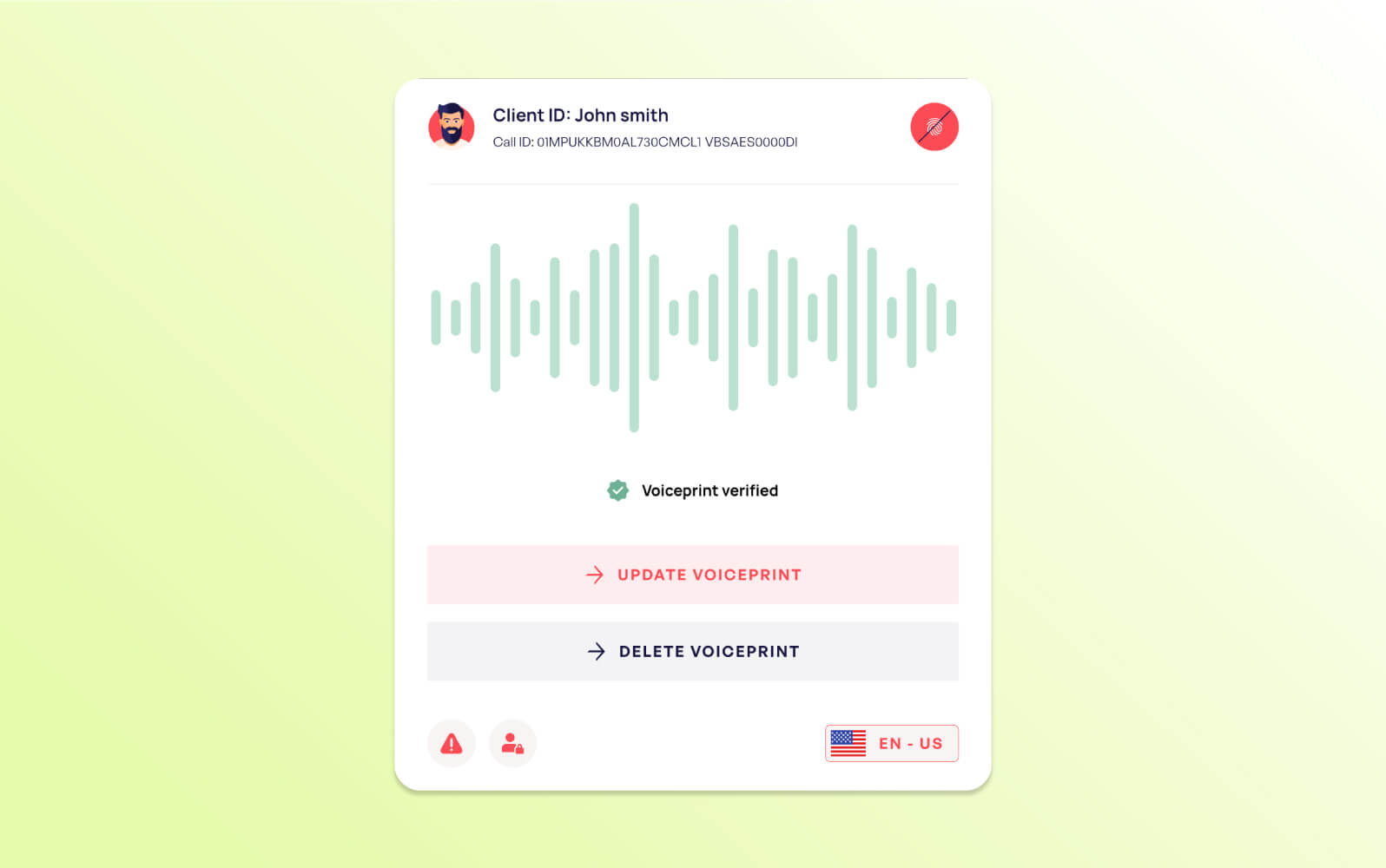
|
Starting price |
Free trial |
Key features |
|
Contact Spitch |
Unavailable |
|
Spitch is a Switzerland-based AI technology company specializing in contact center digitization. It uses NLU engines and generative AI to deliver voice-based customer service solutions. Spitch’s modular, LLM-powered platform enables rapid deployment of AI voice assistants, with options for on-premise or cloud delivery to meet data security standards.
This software supports omnichannel interactions, handling voice and text queries across channels without losing context. Its capabilities include intent recognition, conversation routing, voice biometrics for authentication, speech analytics, and comprehensive agent enablement tools. This ensures efficient customer service, improved agent productivity, and secure authentication across interactions.
|
Pros |
Cons |
|
|
What people are saying:
- “The Spitch team showcased their wealth of knowledge and great collaboration during the implementation.” - Anonymous
- “Best area to improve is integration and sometimes accuracy issues.” - Dharmesh M.
Learn more: Discover how Spitch integrates with Zendesk.
15. VOCALLS
Best for automation
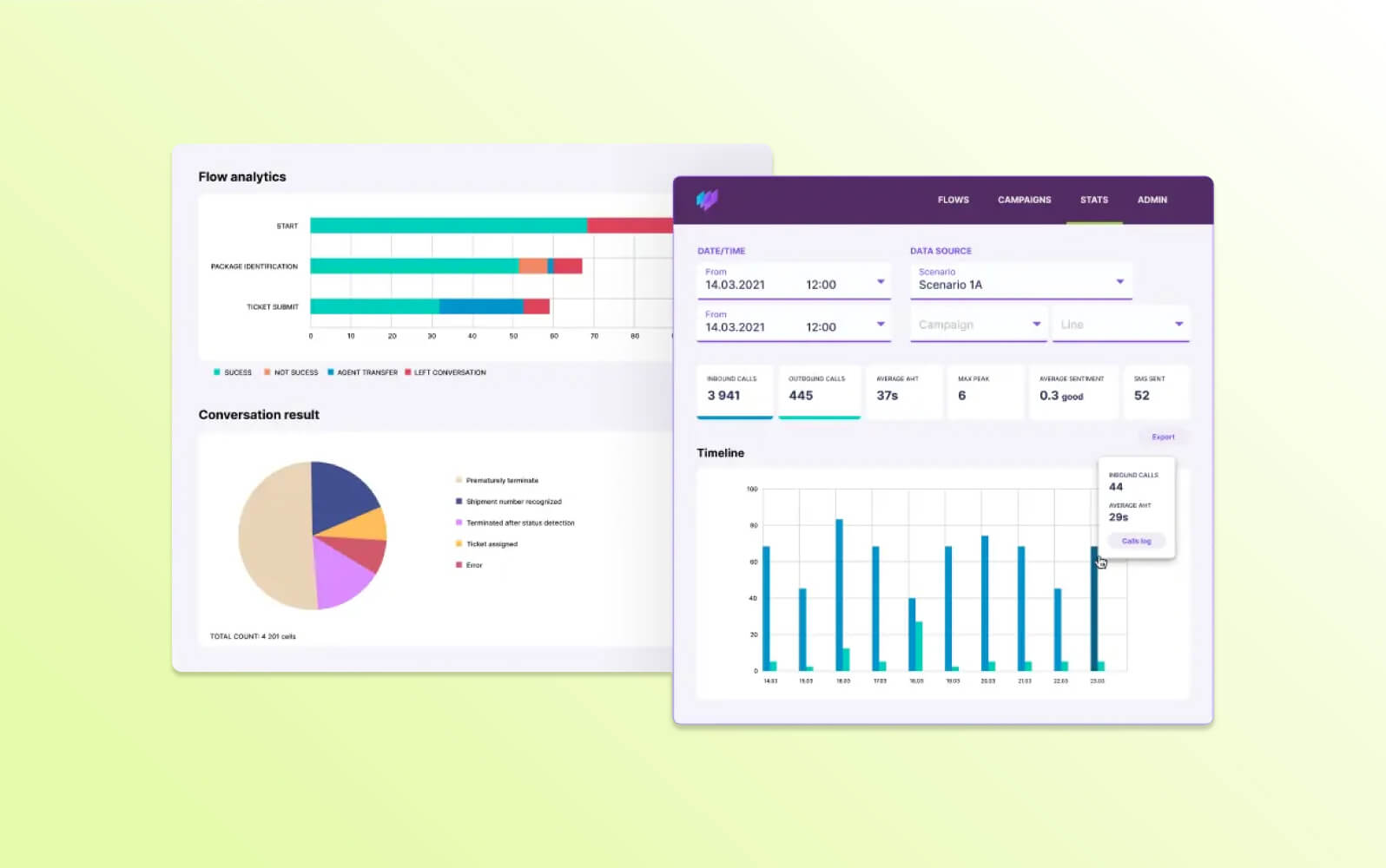
|
Starting price |
Free trial |
Key features |
|
Contact VOCALLS |
Unavailable |
|
Originally founded in 2017 and acquired by CallMiner in 2025, VOCALLS is a voice-first AI platform that automates customer interactions using proprietary NLP and integrated large language models. Its AI voice assistants, called Voicebots, handle a variety of tasks such as order status updates, troubleshooting, payment processing, FAQs, upselling, and reminders.
The platform supports omnichannel self-service experiences and integrates with CRM systems to authenticate users and access customer data securely. VOCALLS offers cloud-based data protection compliant with SOC 2, PCI, and GDPR standards. Its dashboard allows teams to monitor assistant performance and optimize workflows, helping contact centers increase efficiency while maintaining high customer satisfaction.
|
Pros |
Cons |
|
|
What people are saying:
- “VOCALLS understands our demands very well and always delivers service with the best quality.” - Anonymous reviewer
- “This is a good platform but the user is required to have good knowledge of how AI works and its features to know about VOCALLS better.” - Verified User
Learn more: Discover how VOCALLS integrates with Zendesk.
What can AI voice assistants do?
Modern AI voice assistants are far more than simple helpers. They act as AI agents capable of handling everyday tasks, managing data, and even powering elements of customer experience automation. Their capabilities include:
- Voice commands: They can execute spoken commands to control smart devices, manage calendars, send messages, and navigate apps, all without a single touch.
- Contextual awareness: An AI-powered voice assistant remembers previous interactions in a conversation, allowing for more natural, multi-turn dialogue. This makes it feel less like talking to a machine and more like a fluid conversation.
- Conversational AI: Using sophisticated algorithms, these assistants can engage in human-like dialogue, understanding complex queries and providing helpful, relevant responses.
- Information retrieval: A key function is quickly fetching information from vast databases, the web, or internal company resources and delivering it instantly in a spoken format.
- Task completion: From creating a new entry in a ticketing system to processing a refund, AI voice assistants can autonomously complete a variety of routine business and personal tasks.
- Personalized assistance: These tools can learn an individual’s preferences and habits over time, offering more tailored responses and proactive suggestions.
- Multilingual support: Many AI voice assistants are equipped to understand and respond in a variety of languages, providing global support for customers and teams alike.
- Integrations: They can connect with other software and systems, enabling seamless data sharing and workflow automation across a wide range of applications.
- Voice authentication: Some assistants can identify and authenticate a user’s unique voiceprint, providing a secure and convenient way to access systems or personal data.
These capabilities translate into a multitude of benefits for both businesses and their customers.
Benefits of an AI voice assistant
When paired with your customer service software, an AI-powered voice assistant can improve efficiency, elevate AI in customer service, and reduce operational costs. Here’s how these tools make an impact:
Improved productivity
AI voice assistants are powerful and tireless, handling routine inquiries and tasks with speed and accuracy. They can do things like:
- Schedule appointments
- Process orders
- Answer frequently asked questions
With this constant support, human agents can focus on the complex customer interactions that require empathy, critical thinking, and problem-solving skills. Delegating repetitive tasks and other responsibilities to AI voice assistants helps agents concentrate on providing more personalized customer service and building relationships, improving agent productivity and reducing employee turnover.
Extended support hours
Integrating AI-powered voice assistants with your customer service solution enables your business to offer 24/7 support to your customers. While your human agents resolve nuanced interactions during regular work hours, these digital assistants can provide timely answers and resolutions to less complex inquiries at all hours, regardless of the time zone or day of the week. With this level of customer support, businesses can build trust by empowering customers to get the help they need whenever they need it.
Enhanced customer experiences
Voice assistants powered by AI are dynamic. They can respond to natural language and provide answers in a conversational style. These assistants also improve customer experiences by offering consistent, on-brand support across various channels and in a variety of languages, meeting customers where they are.
Reduced organizational costs
By automating the routing and handling of routine tasks and inquiries, AI-powered voice assistants use intelligent automation to help customer service teams do more with less, leading to lower operating costs.
Additionally, by providing 24/7 support and offering customers various self-service options, these assistants can help businesses provide customer support during off-peak hours without increasing headcount.
Better accessibility
AI voice assistants significantly enhance accessibility for people with disabilities by providing hands-free control over devices, simplifying information access, and improving communication capabilities. These assistants use voice recognition and natural language processing to bridge communication gaps and empower users to interact with technology and their environment more independently.
- For someone with a visual impairment, they enable hands-free navigation of digital content and retrieval of information, offering spoken responses rather than relying on visual interfaces.
- For those with mobility impairments, an AI voice assistant can operate computers, smartphones, and smart home devices using only voice commands. This reduces the need for keyboards, mice, or manual controls, increasing independence in daily living.
With so many capabilities and use cases, AI voice assistants vary widely in functionality and compatibility. Understanding what matters most to you will help you choose the right solution.
How to choose the right AI voice assistant
Choosing the best AI voice assistant for your business requires careful research. You need to vet your options, demo prospective tools, and choose the option that will complement your existing systems.
Here are some key features and capabilities to consider during the vetting process:
- Service solution integrations: Ensure the AI voice assistant integrates smoothly with your CX ecosystem, including your call center software and ticketing system. This allows for a smoother transfer of customers to human agents while your team tracks and manages interactions.
- Functionality: Look for the specific functions you need your voice assistant to offer, including multilingual customer support and ticket automation.
- Privacy and security: Evaluate the AI as a service (AIaaS) and ensure its AI assistant's security protocols align with your company's data privacy policies.
- Customization: Customizing responses and greetings is valuable for a more personalized customer experience (CX), so verify that the voice assistant will allow you to customize it.
- Learning and adaptation: Choose an AI voice assistant that uses every interaction to continuously learn, adapt, and improve its responses over time.
- Cost: Compare pricing models and features to find a solution that fits your budget.
- Customer support: For quick and easy implementation and continued use, research how reliable and responsive the customer support delivered by the AI assistant provider is.
- Reviews and ratings: Read online reviews and ratings from other businesses to gain insights into performance and usability.
Carefully evaluating these factors and demoing the products you’re most interested in can help you pick the right AI voice assistant that seamlessly integrates with your service solution and enhances your CX.
AI voice assistants trends and advancements
AI in the workplace is constantly evolving, and businesses are leveraging AI voice assistants to stay ahead. These are some of the key trends shaping their development:
- Hyper-personalization: AI is learning to provide more contextually aware and emotionally intelligent responses, making every interaction feel unique and tailored to the individual.
- On-device intelligence: More processing is happening directly on the device rather than in the cloud. This improves speed, privacy, and the ability to function offline.
- Proactive problem solving: AI voice assistants are moving beyond just responding to commands. They’re becoming capable of anticipating user needs and offering solutions before being asked.
- Autonomous task completion: With greater integration and intelligence, these assistants are taking on more complex, multistep tasks from start to finish without any human intervention.
- Emotional intelligence: New models are being developed to detect and understand human emotions in speech, allowing them to adjust their tone and response to better suit the user's emotional state.
- Integration with augmented reality (AR): The combination of voice and visual AI is leading to new applications, like using voice commands to interact with virtual objects in an AR environment.
- Multi-turn conversations: Advancements in memory and context enable assistants to handle longer, more complex conversations that involve multiple questions and follow-up requests.
- Enterprise integration: AI voice assistants are integrating deeply with enterprise software, automating workflows and providing data-driven insights within business systems.
Emerging trends are shaping how these tools will function and integrate in the near future. Keeping an eye on these advancements can help you make the most of your AI voice assistant.
Frequently asked questions
Integrate an AI-powered voice assistant with a leading CX solution
Zendesk is the industry-leading CX and AI-powered ticketing solution for the modern era. It’s easy to use out of the box and is scalable to any use case. The Zendesk Marketplace offers AI voice assistants that seamlessly integrate with our solution, allowing you to track, manage, and escalate assistant interactions when necessary.
By combining AI agents with a modern CX solution like Zendesk, your team can automate routine support, provide 24/7 support, and focus on high-value interactions. It’s a seamless way to modernize AI in customer service and strengthen both efficiency and customer loyalty.
Don’t wait: Invest in our industry-leading service solution and easily integrate your CX software with a range of AI voice assistants available in the Zendesk Marketplace.
Candace Marshall
Vice President, Product Marketing, AI and Automation
Candace Marshall is a seasoned product marketing leader with a passion for solving complex problems and driving innovation in fast-paced environments. Her career began in operations and research, but her love for understanding customers and translating insights into impactful strategies led her to product marketing. Currently, Candace leads product marketing for Zendesk AI including AI agents and Copilot, driving growth across AI-powered solutions and the core service offerings. Her team delivers end-to-end product marketing strategies, from market validation and messaging to go-to-market execution and customer adoption. Before joining Zendesk, Candace spent nearly a decade at LinkedIn, where she built and led the product marketing team for the rapidly scaling Marketing Solutions division, overseeing key advertising products in the multi-billion-dollar business.
Related AI voice assistant guides
Dive deeper into AI-powered call and voice assistance with these related reads.
